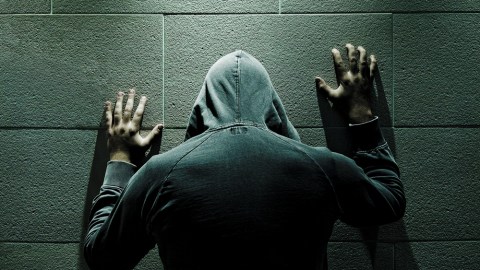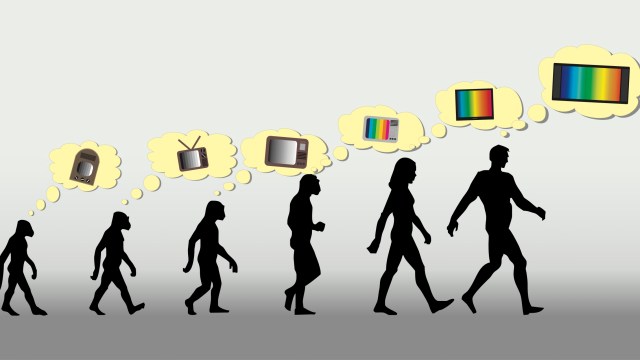Google This: The War On Drugs Has Failed

In a recent global survey sponsored by Virgin Group’s Richard Branson, over 90% of respondents around the world said that the War on Drugs has failed — and it’s no surprise why. At a time when we’re locking up more people than ever before for drug-related offenses, drugs are cheaper, purer and more widely available than ever before. The U.S. has waged a failed 40-year War on Drugs, spending over $1 trillion and making over 45 million arrests – and where has that gotten us? Not only do we have the largest prison population in the world, we’re also creating a self-perpetuating cycle within our nation’s lowest-income communities, where one generation after the next is lost to drugs. So here’s a dangerous ideas: Admit that we’re losing the War on Drugs and then enlist the support of our nation’s most formidable technology companies to help us win.
The best technology, not the biggest gun, wins this war.
Of all the major tech players, Google has shown the greatest willingness to get involved in the War on Drugs and go after the big foreign drug cartels. At a Google Ideas conference this summer in Los Angeles, CEO Eric Schmidt eloquently made the case that the government has lost the War on Drugs, arguing that Google can make a difference when it comes to battling the big Mexican cartels. Many of these cartels are now embracing technology in the form of GPS bracelets to track the progress of low-level smugglers or sophisticated satellite technology to intercept data and images from drones. Schmidt has discussed at least three different ways that Google can help us win the War on Drugs: creating a way for citizens to safely report criminal drug activity without threat of retribution from narco-criminals; enabling real-time intelligence sharing between military and police; and providing a way to analyze all the data out there about individuals, bank accounts and cross-border money flows.
So why are we losing the War on Drugs? We’ve focused too much on rounding up the low-level offenders who have become the biggest (and easiest) target in the War on Drugs. That’s a point compellingly made in the latest documentary film by Eugene Jarecki, “The House I Live In,” which won the Grand Jury Prize at this year’s Sundance. As Jarecki points out in the film, we’ve gotten to where we are today primarily because our government’s leaders fear being labeled soft on crime and soft on drugs. The only politically palatable options are those that empower the police, the judges and the narcotics officers to be as strong and as ruthless as possible. That means strict sentencing minimums for even non-violent drug offenses and the creation of an entire criminal justice system that ends up rewarding police departments for making as many arrests as possible. As a result, we are not waging war against the cartels – we are waging war against our own communities, where generation after generation is losing hope.
Consider the example of Baltimore, one of the cities mentioned in Jarecki’s film, thanks to the participation of “The Wire” creator David Simon, himself a veteran of the War on Drugs. After years on the Baltimore drug beat, Simon found that all of the tactics used so far – such as Three Strikes and You’re Out and minimum sentencing laws – lead to only one outcome: an all-out war on our city’s poorest communities and the demonization of individuals from lower-income brackets. As Simon pointed out in an interview with NPR earlier this year:
“We are the jailingest country on the planet, beyond Saudi Arabia, North Korea and China. Nobody jails the population like we do. And yet, drugs are pure than ever before. They’re more available. There are younger and younger kids willing to sell them. It’d be one thing if it’s draconian and it worked. But it’s draconian, and it doesn’t work, and it just leads to war.”
So where do we go from here, assuming that technology really is the solution?
If the idea of the U.S. sending drones across the Mexican border to spy on cartel leaders creeps you out, there are other technology solutions that could be just as effective. (After all, who wants to be vacationing in Acapulco when a Predator Drone suddenly appears over the mountains?) As Google’s Schmidt has pointed out, the key is to embrace all the innovative ideas that created the current Web – such as crowdsourcing and packet-switching technology – and then apply it to the flood of information and data that we have about the big narco-cartels. Imagine a type of Wikileaks for people who fear the Mexican cartels but still want to speak out? Sunlight, as they say, is the best disinfectant.
Solutions that may not be politically palatable before the 2012 Elections – after all, as Jarecki reminds us, who wants to be seen as “soft on crime”? – may be on the table after November. For the sake of forever ending this interminable War on Drugs, for the sake of our communities that have been ravaged by drugs, one hopes that technology can truly make a difference in changing forever the way we think about the War on Drugs.
image: Man Reliving His Past / Shutterstock





